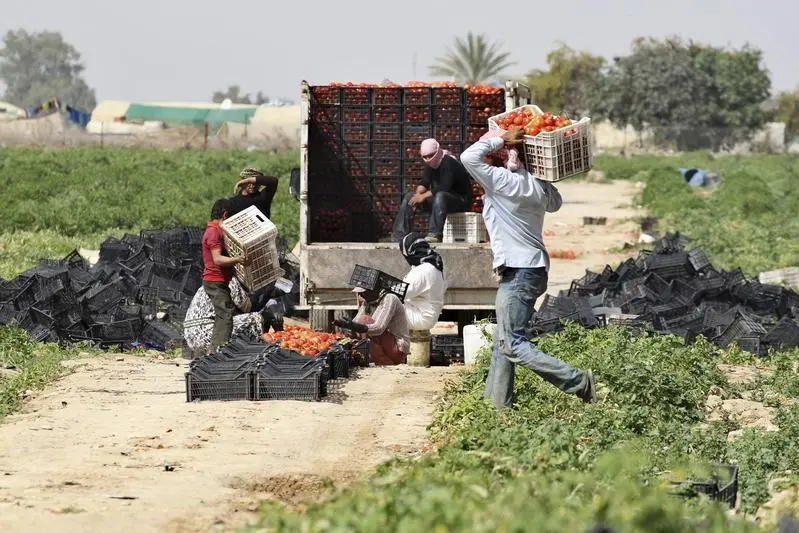PHOTO
AMMAN — The agricultural industry plays a crucial role in fostering sustainable growth and economic resilience for the Jordanian economy, according to experts.
In the coming year, the Agriculture Ministry’s capital expenditure is set to reach JD40 million, as recently announced. Despite facing water scarcity, Jordan aims to maximise the added value of agriculture to the national economy.
Currently, the Kingdom produces 60 per cent of the local consumption of agricultural products, with exports reaching over 60 countries worldwide.
Addressing the significance of the agricultural sector, which contributes 20 per cent to the local output, Minister of Agriculture Khaled Huneifat highlighted its significant role in achieving food security and generating thousands of job opportunities, as reported by the Jordan News Agency, Petra.
The minister emphasised the sector’s environmental contributions, addressing climate change, and support of green economy.
During the COVID-19 pandemic, Jordan successfully secured all local market needs for various vegetables and fruits, with no reported shortages, said Huneifat.
Efforts to reorganise the agricultural sector have been initiated, starting with agricultural guidance, collaboration with farmers, and a focus on training and marketing. The Agricultural Credit Fund has increased its lending portfolio to expand lending operations to farmers, supporting their initiatives.
The ministry has implemented several collaborative projects with various entities and the private sector, particularly in fish farming, mushroom production, and the cultivation of new agricultural varieties.
Addressing agricultural marketing challenges, both in the local market and expanding export markets for Jordanian agricultural products, remains a priority for the ministry.
Economist Khaled Salameh shared his perspective on the economic impact of these developments.
“Boosting agricultural production and manufacturing have the potential to stimulate economic growth and contribute to overall stability,” Salameh said.
Salameh highlighted that Jordanian farmers face production surplus challenges, particularly with tomatoes, some citrus fruits, and grapes. While all of these products can be processed and transformed into packaged consumables with little investment, Salameh noted that many processing machines cost a manageable amount of investment.
An agriculture academic, who preferred to remain anonymous, told The Jordan Times that there is an urgent need to advance agricultural curricula.
She emphasised the need to align university curricula with the evolving needs of the job market and global developments. “Hydroponics, aquaponics, irrigation technologies, and soil decomposition techniques are considered outdated at present. If you look at advanced economies, you find them applying AI technologies to boost their production; robots are taking over even in the agricultural sector,” she said.
The source stressed that adapting smart and innovative educational programmes is crucial for preparing the next generation of professionals in the agricultural sector.
Offering another perspective, Mohammad Rabei, a local farmer, told The Jordan Times that farmers are not well-equipped with technologies that help them expand their produce and protect it from environmental challenges.
“One of the major challenges we face as farmers is a lack of funds,” Rabei added.
Rabei stressed that farmers use intermediaries, who themselves have storage capacities and capabilities. Intermediaries export produce, sell it to factories, or send it to the local market to get sold. One application that links the entire supply chain can help overcome this challenge, said Rabei.
Additionally, investment in agricultural manufacturing is crucial for both the economy and the sustainability of the agricultural sector in Jordan, according to Rabei.
© Copyright The Jordan Times. All rights reserved. Provided by SyndiGate Media Inc. (Syndigate.info).



















